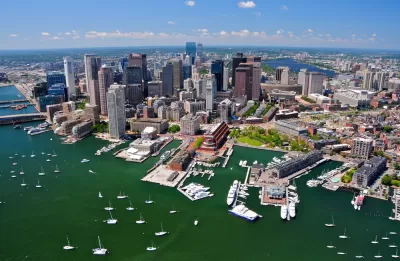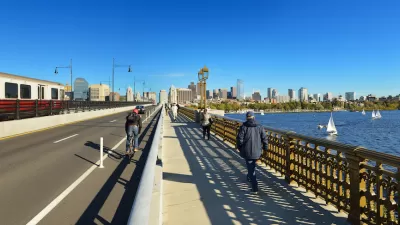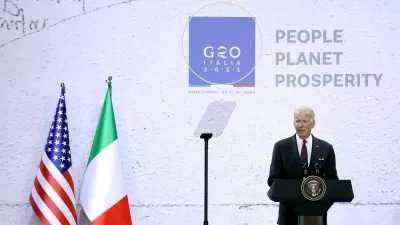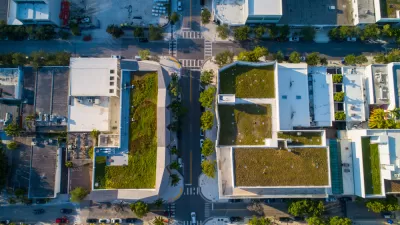The Boston City Council approved a new ordinance would eliminate emissions from the 4 percent of the buildings responsible for 60 percent of the city's building emissions.

"The city of Boston will require all buildings over 20,000 square feet to achieve zero carbon emissions by 2050," reports Scott Pruden.
The City Council voted to approve the new zero emissions requirement on September 22. Many local governments face resistance from state legislatures with preemption powers over local building codes.
"The ordinance applies to about 4% of the city’s structures, including commercial and residential buildings that produce 60% of the city’s building emissions," adds Pruden.
Pruden describes Boston's action as the latest in a string of U.S. cities reducing or eliminating emission from buildings, including the cities of Berkeley, San Francisco, and Seattle—all of which have voted in the past two years to restrict natural gas infrastructure in newly constructed buildings.
FULL STORY: Boston passes new building decarbonization ordinance

Maui's Vacation Rental Debate Turns Ugly
Verbal attacks, misinformation campaigns and fistfights plague a high-stakes debate to convert thousands of vacation rentals into long-term housing.

Planetizen Federal Action Tracker
A weekly monitor of how Trump’s orders and actions are impacting planners and planning in America.

In Urban Planning, AI Prompting Could be the New Design Thinking
Creativity has long been key to great urban design. What if we see AI as our new creative partner?

King County Supportive Housing Program Offers Hope for Unhoused Residents
The county is taking a ‘Housing First’ approach that prioritizes getting people into housing, then offering wraparound supportive services.

Researchers Use AI to Get Clearer Picture of US Housing
Analysts are using artificial intelligence to supercharge their research by allowing them to comb through data faster. Though these AI tools can be error prone, they save time and housing researchers are optimistic about the future.

Making Shared Micromobility More Inclusive
Cities and shared mobility system operators can do more to include people with disabilities in planning and operations, per a new report.
Urban Design for Planners 1: Software Tools
This six-course series explores essential urban design concepts using open source software and equips planners with the tools they need to participate fully in the urban design process.
Planning for Universal Design
Learn the tools for implementing Universal Design in planning regulations.
planning NEXT
Appalachian Highlands Housing Partners
Mpact (founded as Rail~Volution)
City of Camden Redevelopment Agency
City of Astoria
City of Portland
City of Laramie





























